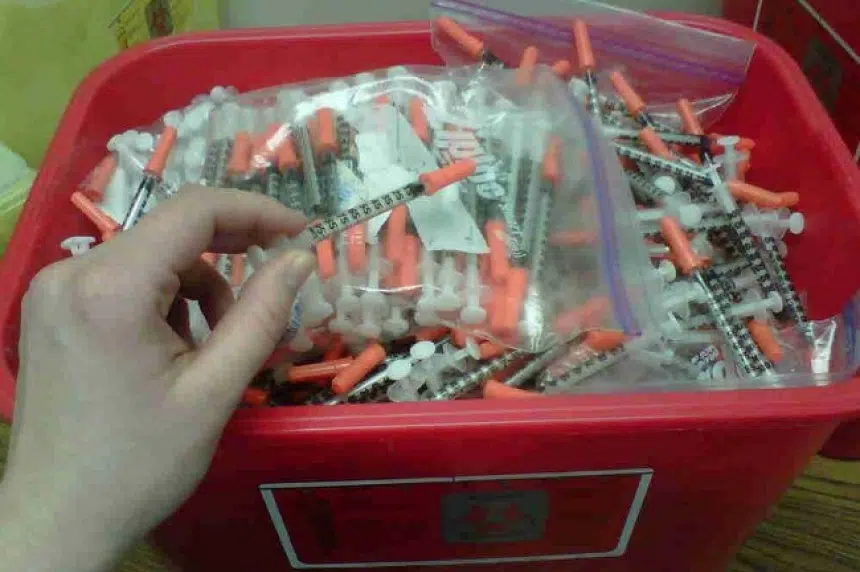Concerns around Saskatchewan’s opioid crisis are growing after the only two doctors in Regina who can provide medication-assisted opioid therapy stopped practising.
In March, the College of Physicians and Surgeons of Saskatchewan (CPSS) accused Dr. Ashis Paul and Dr. Rajnikant Patel, who worked at the Parliament Methadone Clinic, of unprofessional conduct.
According to the CPSS allegations, both doctors “failed to meet the standards of the medical profession in relation to prescribing methadone,” and there were conflicts of interest regarding their methadone practice.
However, nothing has been proven and no hearing dates have been set.
To make up for what Health Minister Jim Reiter called the “unforeseen” loss of two doctors, Reiter said a physician has been brought in to pick up the 700-patient caseload. That physician also is expected to help recruit doctors willing to prescribe the opioid medication.
“This isn’t necessarily just a case of, ‘Go out and recruit a physician who will come in and do this full-time,’ ” Reiter told reporters after Question Period on Thursday. “Much of this, to my understanding, is (reaching out to) existing physicians to ask them to add this as part of their overall caseload.”
To temporarily remedy the situation, Reiter added that a Health Canada exemption has heightened pharmacists’ prescribing power to include methadone until next fall.
Though measures are in place, NDP MLA Danielle Chartier questions whether they are enough.
She noted that “many in the community are quite panicked about what this all means” and are worried it could lead many dealing with opioid addiction to relapse.
“What happened with the (CPSS) isn’t (Reiter’s) responsibility, but insuring that that gap is filled does fall on the minister,” said Chartier. “Hiring one physician and expecting her to take on the caseload of 700, and then expecting her to recruit into a field that is already incredibly difficult to recruit to, is unacceptable.”
She suggested the Ministry of Health could bring more money to the table as an incentive for specialists to come to Regina.
“What we need to do is put more resources into it and do everything humanly possible,” she said. “We have an addictions crisis in the province — there is no question about that.”







